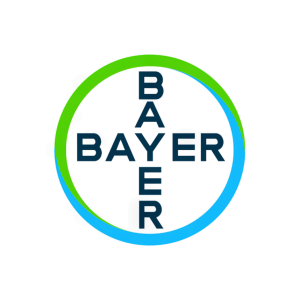KERENDIA® (finerenone) Meets Primary Endpoint in Phase III Clinical Trial for Adults with Type 1 Diabetes and Chronic Kidney Disease
- The investigational FINE-ONE trial met its primary endpoint, demonstrating that finerenone led to a significant reduction in urine albumin-to-creatinine ratio (UACR), an important marker of cardiovascular risk and kidney disease progression, from start of trial through six months, for people living with type 1 diabetes (T1D) and chronic kidney disease (CKD) versus those receiving standard of care plus placebo1
- These data were presented as a late-breaker at the opening plenary session at the American Society of Nephrology (ASN) Kidney Week 2025
- Additionally, three presentations from the CONFIDENCE trial in patients with type 2 diabetes (T2D) and CKD, which investigated simultaneous administration of finerenone and a sodium-glucose transport protein 2 inhibitor (SGLT2i),2 will also be presented as two late-breaking analyses and featured independently as part of the “Best of the Journal of the American Medical Association and the New England Journal of Medicine” session
“We are excited to announce the results of the FINE-ONE trial, which represents the first positive Phase III study in 30 years dedicated to patients with type 1 diabetes and chronic kidney disease3—a research advancement underscored by the trial’s inclusion in the opening plenary session,” said Dr. Janet McGill, Professor of Medicine in the Division of Endocrinology, Metabolism, and Lipid Research at Washington University School of Medicine in
Up to
Since July 2021, KERENDIA has been approved to reduce the risk of cardiovascular (CV) death, hospitalization for heart failure, non-fatal myocardial infarction (MI), sustained estimated glomerular filtration rate (eGFR) decline, and end-stage kidney disease in adult patients with CKD associated with type 2 diabetes (T2D). In July 2025, KERENDIA also received
FINE-ONE (FINErenone efficacy and safety in chronic kidney disease and type ONE diabetes; NCT05901831) is a pivotal, global, randomized, prospective, double-blind, multicenter, Phase III study in people with T1D and CKD. It enrolled 242 adult participants with the primary objective to demonstrate whether the addition of finerenone, 10 or 20 mg once daily, to standard of care is superior to placebo in reducing UACR over six months. The primary endpoint was the relative change in UACR from baseline over six months. UACR is being investigated as a bridging biomarker to demonstrate delayed kidney disease progression.1 Elevated UACR is strongly associated with CV risk and kidney disease progression in multiple patient populations, including T1D and T2D.8,9,10 Safety of finerenone was also assessed in the study. Finerenone is the first investigational treatment, since the 1990s, to show positive results in a Phase III study dedicated to people living with T1D and CKD1 and works by selectively and potently blocking mineralocorticoid receptor overactivation in the heart and kidneys.7
In FINE-ONE, safety and tolerability with finerenone were largely consistent with the existing evidence for people with T2D and CKD. The rate of treatment-emergent adverse events (TEAEs) was
“FINE-ONE is the fourth positive consecutive pivotal Phase III clinical trial for KERENDIA,” said Carolina Aldworth, M.D., MSc, Executive Medical Director at Bayer. “The findings represent another important milestone reinforcing the evidence for KERENDIA across cardiovascular and kidney care in multiple patient populations.”
Bayer plans to submit a supplemental New Drug Application (sNDA) to the
Additional Data to be Presented at ASN 2025
Data from the Phase II CONFIDENCE (COmbinatioN effect of FInerenone anD EmpaglifloziN in participants with chronic kidney disease and type 2 diabetes using a UACR Endpoint; NCT05254002) trial in patients with T2D and CKD, which investigated simultaneous administration of finerenone and a sodium-glucose transport protein 2 inhibitor (SGLT2i),2 will be presented as two late-breaking analyses. Previously announced results from CONFIDENCE will also be featured independently in the “Best of the Journal of the American Medical Association and the New England Journal of Medicine” session taking place on November 7, highlighting the most impactful kidney research articles recently published in these prestigious journals.
“The findings from the CONFIDENCE study add to the robust body of evidence reinforcing UACR as a critical marker of risk for cardiovascular events and kidney failure,” said Dr. Rajiv Agarwal, Professor Emeritus of Medicine, Indiana University School of Medicine and VA Medical Center,
About KERENDIA’s Clinical Trial Program
KERENDIA’s clinical trial program—called FINEOVATE—currently comprises 10 Phase III studies with dedicated programs in HF (MOONRAKER) and CKD (THUNDERBALL). The MOONRAKER program includes FINEARTS-HF as well as the ongoing, collaborative, investigator-sponsored studies REDEFINE-HF,11 CONFIRMATION-HF12 and FINALITY-HF.13 The THUNDERBALL CKD program consists of the completed studies FIDELIO-DKD, FIGARO-DKD, and FINE-ONE14 as well as the ongoing investigational studies FIND-CKD,15 FIONA,16 and FIONA-OLE.17
About KERENDIA® (finerenone)7
INDICATIONS:
KERENDIA (finerenone) is indicated to reduce the risk of:
- sustained estimated glomerular filtration rate (eGFR) decline, end-stage kidney disease, cardiovascular death, non-fatal myocardial infarction, and hospitalization for heart failure in adult patients with chronic kidney disease (CKD) associated with type 2 diabetes (T2D) (10mg, 20mg tablets)
-
cardiovascular death, hospitalization for heart failure, and urgent heart failure visits in adult patients with heart failure with left ventricular ejection fraction (HF LVEF) ≥
40% (10mg, 20mg, 40mg tablets)
IMPORTANT SAFETY INFORMATION
CONTRAINDICATIONS:
- Hypersensitivity to any component of this product
- Concomitant use with strong CYP3A4 inhibitors
- Patients with adrenal insufficiency
WARNINGS AND PRECAUTIONS:
-
Hyperkalemia: KERENDIA can cause hyperkalemia. The risk for developing hyperkalemia increases with decreasing kidney function and is greater in patients with higher baseline potassium levels or other risk factors for hyperkalemia.
Measure serum potassium and eGFR in all patients before initiation of treatment with KERENDIA and dose accordingly. Do not initiate KERENDIA if serum potassium is >5 mEq/L. Measure serum potassium periodically during treatment with KERENDIA and adjust dose accordingly. More frequent monitoring may be necessary for patients at risk for hyperkalemia, including those on concomitant medications that impair potassium excretion or increase serum potassium.
-
Worsening of Renal Function in Patients with Heart Failure: KERENDIA can cause worsening of renal function in patients with heart failure. Rarely, severe events associated with worsening renal function, including events requiring hospitalization, have been observed.
Measure eGFR in all patients before initiation of treatment or with dose titration of KERENDIA and dose accordingly. Initiation of KERENDIA in patients with heart failure and an eGFR <25 mL/min/1.73 m2 is not recommended. Measure eGFR periodically during maintenance treatment with KERENDIA in patients with heart failure. Consider delaying up-titration or interrupting treatment with KERENDIA in patients who develop clinically significant worsening of renal function.
MOST COMMON ADVERSE REACTIONS:
-
CKD associated with T2D: From the pooled data of FIDELIO-DKD and FIGARO-DKD, the adverse reactions reported in ≥
1% of patients on KERENDIA and more frequently than placebo were hyperkalemia (14% vs6.9% ), hypotension (4.6% vs3% ), and hyponatremia (1.3% vs0.7% ). -
HF LVEF ≥
40% : From FINEARTS-HF, the adverse reactions reported in ≥1% of patients on KERENDIA and more frequently than placebo were hyperkalemia (9.7% vs4.2% ), hypotension (7.6% vs4.7% ), and hyponatremia (1.9% vs0.9% ).18 Events related to worsening renal function were reported more frequently in the KERENDIA group (18% ) compared with placebo (12% ).
DRUG INTERACTIONS:
- Strong CYP3A4 Inhibitors: Concomitant use of KERENDIA with strong CYP3A4 inhibitors is contraindicated. Avoid concomitant intake of grapefruit or grapefruit juice.
- Moderate and Weak CYP3A4 Inhibitors: Monitor serum potassium during drug initiation or dosage adjustment of either KERENDIA or the moderate or weak CYP3A4 inhibitor, and adjust KERENDIA dosage as appropriate.
- Strong and Moderate CYP3A4 Inducers: Avoid concomitant use of KERENDIA with strong or moderate CYP3A4 inducers.
- Sensitive CYP2C8 Substrates at KERENDIA 40mg: Monitor patients more frequently for adverse reactions caused by sensitive CYP2C8 substrates if KERENDIA 40mg is co-administered with such substrates, since minimal concentration changes may lead to serious adverse reactions.
USE IN SPECIFIC POPULATIONS:
- Lactation: Avoid breastfeeding during treatment with KERENDIA and for 1 day after treatment.
- Hepatic Impairment: Avoid use of KERENDIA in patients with severe hepatic impairment (Child Pugh C) and consider additional serum potassium monitoring with moderate hepatic impairment (Child Pugh B).
Please see the Prescribing Information for KERENDIA.
About Bayer’s Commitment in Cardiovascular and Kidney Diseases
Bayer’s legacy in cardiovascular care spans decades of scientific innovation and patient-focused research. As a long-standing leader in cardiology, Bayer has consistently advanced therapies that address the complex interplay between the heart and kidneys—two organs deeply connected in both health and disease. Today, that heritage continues to guide our commitment to developing innovative treatments for patients facing high unmet medical needs. With a growing portfolio of approved therapies and promising compounds in development, Bayer is shaping the future of cardiovascular care through precision medicine, scientific rigor, and a deep sense of purpose.
About Bayer
Bayer is a global enterprise with core competencies in the life science fields of health care and nutrition. In line with its mission, “Health for all, Hunger for none,” the company’s products and services are designed to help people and the planet thrive by supporting efforts to master the major challenges presented by a growing and aging global population. Bayer is committed to driving sustainable development and generating a positive impact with its businesses. At the same time, the Group aims to increase its earning power and create value through innovation and growth. The Bayer brand stands for trust, reliability and quality throughout the world. In fiscal 2024, the Group employed around 93,000 people and had sales of
Find more information at https://pharma.bayer.com/
Follow us on Facebook: http://www.facebook.com/bayer
Follow us on X: @BayerPharma
Forward-Looking Statements
This release may contain forward-looking statements based on current assumptions and forecasts made by Bayer management. Various known and unknown risks, uncertainties and other factors could lead to material differences between the actual future results, financial situation, development or performance of the company and the estimates given here. These factors include those discussed in Bayer’s public reports, which are available on the Bayer website at www.bayer.com. The company assumes no liability whatsoever to update these forward-looking statements or to conform them to future events or developments.
1 Heerspink HJL, Cherney D, Rossing P, Lawatscheck R, McGill JB. Finerenone in chronic kidney disease and type 1 diabetes [abstract]. Presented at: American Society of Nephrology Kidney Week; November 6, 2023;
2 Agarwal R, Green JB, Heerspink HJL, et al. Finerenone with Empagliflozin in Chronic Kidney Disease and Type 2 Diabetes. New England Journal of Medicine. 2025;393(6). doi:https://doi.org/10.1056/nejmoa2410659
3 Heerspink, Hiddo J L et al. “Rationale and design of a randomised phase III registration trial investigating finerenone in participants with type 1 diabetes and chronic kidney disease: The FINE-ONE trial.” Diabetes research and clinical practice vol. 204 (2023): 110908. doi:10.1016/j.diabres.2023.110908
4 Barzilay JI, Youssef M.K. Farag, Durthaler JM. Albuminuria: An Underappreciated Risk Factor for Cardiovascular Disease. Journal of the American Heart Association. 2024;13(2). doi:https://doi.org/10.1161/jaha.123.030131
5 Tuttle KR, Reynolds CL, Kornowske LM, et al. Prevalence and severity of chronic kidney disease in a population with type 1 diabetes from a
6 Rossing P, Per-Henrik Groop, Singh R, Lawatscheck R, Tuttle KR. Prevalence of Chronic Kidney Disease in Type 1 Diabetes Among Adults in the
7 Bayer Pharmaceuticals. Kerendia (finerenone) [package insert].
8 Coresh, Josef et al. “Change in albuminuria and subsequent risk of end-stage kidney disease: an individual participant-level consortium meta-analysis of observational studies.” The lancet. Diabetes & endocrinology vol. 7,2 (2019): 115-127. doi:10.1016/S2213-8587(18)30313-9
9 Heerspink, Hiddo J L et al. “Change in albuminuria as a surrogate endpoint for progression of kidney disease: a meta-analysis of treatment effects in randomised clinical trials.” The Lancet. Diabetes & endocrinology vol. 7,2 (2019): 128-139. doi:10.1016/S2213-8587(18)30314-0
10 de Boer, Ian H et al. “Albuminuria Changes and Cardiovascular and Renal Outcomes in Type 1 Diabetes: The DCCT/EDIC Study.” Clinical journal of the American Society of Nephrology: CJASN vol. 11,11 (2016): 1969-1977. doi:10.2215/CJN.02870316
11 A Study to Determine the Efficacy and Safety of Finerenone on Morbidity and Mortality Among Hospitalized Heart Failure Patients (REDEFINE-HF). Clinical trial registration No. NCT 06008197. https://www.clinicaltrials.gov/study/NCT06008197. Accessed March 10, 2025.
12 A Study to Determine the Efficacy and Safety of Finerenone and SGLT2i in Combination in Hospitalized Patients with Heart Failure (CONFIRMATION-HF) (CONFIRMATION). Clinical trial registration No. NCT06024746. https://www.clinicaltrials.gov/study/NCT06024746. Accessed March 10, 2025.
13 A Study to Evaluate Finerenone on Clinical Efficacy and Safety in Patients with Heart Failure Who are Intolerant or Not Eligible for Treatment with Steroidal Mineralocorticoid Receptor Antagonists (FINALITY-HF). Clinical trial registration No. NCT06033950. https://www.clinicaltrials.gov/study/NCT06033950. Accessed March 10, 2025.
14 A Study to Learn How Well the Study Treatment Finerenone Works and How Safe it is in People With Long-term Decrease in the Kidneys’ Ability to Work Properly (Chronic Kidney Disease) Together With Type 1 Diabetes (FINE-ONE). Clinical trial registration No. NCT05901831. https://www.clinicaltrials.gov/study/NCT05901831. Accessed March 10, 2025.
15 A Trial to Learn How Well Finerenone Works and How Safe it is in Adult Participants With Non-diabetic Chronic Kidney Disease (FIND-CKD). Clinical trial registration No. NCT05047263. https://www.clinicaltrials.gov/study/NCT05047263. Accessed March 10, 2025.
16 A Study to Learn More About How Well the Study Treatment Finerenone Works, How Safe it is, How it Moves Into, Through and Out of the Body, and the Effects it Has on the Body When Taken With an ACE Inhibitor or Angiotensin Receptor Blocker in Children with Chronic Kidney Disease and Proteinuria (FIONA). Clinical trial registration No. NCT05196035. https://www.clinicaltrials.gov/study/NCT05196035. Accessed March 10, 2025.
17 A Study to Learn More About How Safe the Study Treatment Finerenone is in Long-term Use When Taken With an ACE Inhibitor or Angiotensin Receptor Blocker Over 18 Months of Use in Children and Young Adults From 1 to 18 Years of Age With Chronic Kidney Disease and Proteinuria (FIONA OLE). Clinical trial registration No. NCT05457283. https://www.clinicaltrials.gov/study/NCT05457283. Accessed March 10, 2025.
18 Data on file.
COR-KER-US-0173-1 11/25
View source version on businesswire.com: https://www.businesswire.com/news/home/20251106278975/en/
Media Contact:
Sarra Herzog
Bayer Media Relations
Sarra.Herzog@bayer.com
+1 862.460.8764
Source: Bayer









